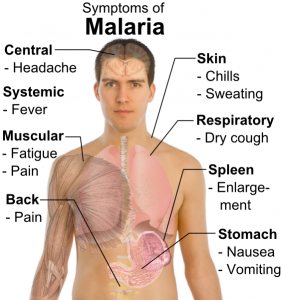 Statistics provided by the Health Protection Agency (HPA) show that malaria has increased by 29% over the last 24 months. In the last 10 years the majority of cases have shown up in visitors to South Asia and West Africa.
Statistics provided by the Health Protection Agency (HPA) show that malaria has increased by 29% over the last 24 months. In the last 10 years the majority of cases have shown up in visitors to South Asia and West Africa.
With more than 1760 new infections last year, the HPA is urging visitors to take precautions to prevent malaria, the second highest killer worldwide. Since 2008, when there were 1365 new infections, the rate has increased alarmingly, with 1490 in 2009 to the 1760 today.
Last year most infections were traced to Ghana and Nigeria with 10% of visitors having contracted the illness in India. According to the HPA these travellers had not taken or were unable to get the necessary advice for its prevention. Being holidaymakers they tend to stay for longer periods than business people.
Dr. Jane Jones, of the Health Protection Agency, says it is a myth to think that once you have had malaria it will not return. Professor Peter Chiodini, head of the HPA Malaria Laboratory said these figures, published on World Malaria Day, should make travellers heed advice and take precautions.
Mosquitoes are responsible for the spread of malaria and it cannot be passed from one person to another. Indications of malaria are fever, influenza type sickness, body aches, headache and fatigue. Further symptoms are diarrhoea, nausea and vomiting. Anybody travelling to malaria infested or tropical areas should take preventative medicines. They should visit their GP or health clinic well before their trip.
